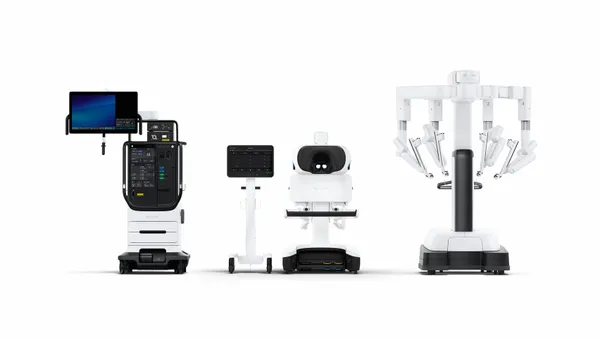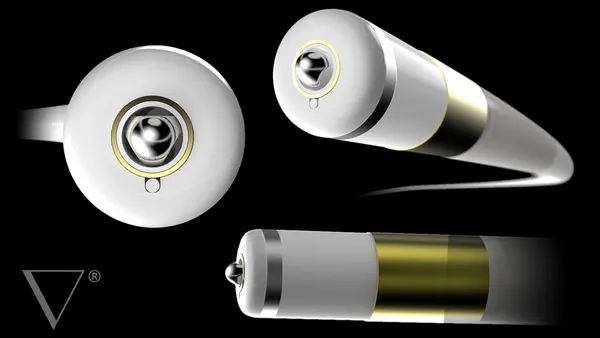Dive Brief:
- Medtronic has received two complaints of batteries for HeartWare Ventricular Assist Device (HVAD) systems that stopped providing power or failed to hold a charge, one resulting in a patient’s death, the company wrote in an emailed statement. The report lead the medtech company to initiate a recall of HVAD batteries.
- Medtronic’s latest recall for the HVAD System has been labeled a Class I event by the Food and Drug Administration, yet another recall for the troubled heart pump.
- Medtronic has recalled batteries used in the system due to a weld defect that affected “internal components within the HVAD battery, resulting in the battery to malfunction and no longer provide power or prevent the battery from holding a complete charge or properly recharging,” according to an entry in the FDA’s recall database.
Dive Insight:
Medtronic’s HVAD System has a history of product safety issues, with over a dozen Class I recalls. The company ultimately stopped selling and distributing the system in June 2021, after rival devices from Abbott Laboratories were shown to be safer for patients.
The system, which helps a failing heart pump blood, has had safety issues even after being pulled from the market. In April, Medtronic initiated a Class I recall for another weld defect that disrupted the internal pumps to the system, which injured two patients and killed one.
Medtronic said in a previous statement to MedTech Dive this month that approximately 3,500 patients currently have the system implanted. When the device was pulled from the market in June 2021, approximately 4,000 patients had the device implanted.
On May 5, Medtronic sent letters to customers both in and outside the U.S. regarding the battery recall, according to the FDA. The letter asked customers to remind their patients to “always keep two sources of power connected to their controller and have fully charged spare batteries available at all times. If a [Power Disconnect] alarm occurs while a battery is physically connected, that battery should be taken out of service.”
The company also asked customers to share the recall letter with any organization where the products may have been transferred, the FDA said.
Medtronic did not comment on how many of the 429 recalled batteries have been retrieved so far.
The second complaint the company received from a recalled battery did harm the patient, as the pump was connected to a backup power source, according to a May alert provided to MedTech Dive by the watchdog group ECRI.
In its emailed statement, Medtronic did not directly address whether it plans to remove every system and component from hospitals and facilities. The company warned that the risk of removing the devices from patients “may outweigh the potential benefits.”
The latest Medtronic recall adds to six other Class I recall notices the FDA has published this year for the company, including one for its subsidiary Covidien. The agency also published 10 Class I recall notices for Medtronic in 2021.
In addition to the recalls, Medtronic said in December that its diabetes group received a warning letter from the FDA outlining product safety and operational problems.
CEO Geoff Martha addressed the ongoing recalls at the J.P. Morgan Healthcare Conference in January, calling them his top priority.
In a March letter to the FDA, Rep. Raja Krishnamoorthi, D-Ill., criticized the agency’s handling of the device and asked for information regarding the oversight of the HVAD System, given the history of recalls and reports of patient injuries and deaths.
“FDA is charged with ensuring patient access to safe, effective, and high-quality medical devices, but over multiple administrations the agency failed to protect consumers from the dangerous HVAD System,” Krishnamoorthi wrote in the letter. “FDA must take a more proactive role in its regulation of devices that have been the subject of Warning Letters and Class I recalls, and in its communication of product defects to other agencies responsible for patient health.”













